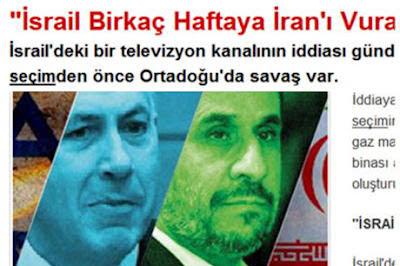"Every American is less secure today because [President Obama] has failed to slow Iran’s nuclear threat,” Mitt Romney charged in his acceptance speech late Thursday at the Republican National Convention in Tampa.
“In his first TV interview as president, he said we should talk to Iran,” Romney continued. “We are still talking, and Iran’s centrifuges are still spinning.”
Romney also repeated his previous concerns over Obama’s treatment of Israel.
“President Obama has thrown allies like Israel under the bus, even as he has relaxed sanctions on Castro’s Cuba. He abandoned our friends in Poland by walking away from missile defense commitments, but he’s eager to give Russia’s president Putin the flexibility he desires after the election,” he said to a background noise of loud “boos” from the convention attendees.
“Under my presidency,” Romney promised, “our friends will see more loyalty and Mr. Putin will see a little less flexibility and more backbone.”
Throughout this week, Republican speakers at the RNC blasted Obama’s foreign policy, charging that American power abroad is in decline because of it.
The critique of the incumbent Democratic president’s policies garnered brief mentions in the speeches of Paul Ryan and Condoleezza Rice, and considerably more than a mention in the speech of 2008
Former Republican Presidential candidate, Senator John McCain, also, stated:
“Instead of managing American decline, leaving allies to doubt us and adversaries to test us,” as the Obama administration has done, “we will act in the conviction that the United States is still the greatest force for peace and liberty that this world has ever known,” vice presidential candidate Ryan said to eager applause Wednesday night.
“You see, when friends or foes alike don’t know the answer to that question, unambiguously and clearly, the world is likely to be a more dangerous and chaotic place,” she said, adding that “Mitt Romney and Paul Ryan understand this reality.
“From Israel to Colombia, from Poland to the Philippines, our allies and friends have to know that we will be reliable and consistent and determined,” Rice told the delegates.
McCain used much of his speech to argue “what Mitt Romney knows, and what we know – that our success at home also depends on our leadership in the world.
“We are now being tested by an array of threats that are more complex, more numerous and just as deadly as any I can recall in my lifetime,” said the decorated Vietnam veteran, father of serving US soldiers, and scion to Navy admirals.
He then echoed Ryan’s “decline” comment, saying, “We can choose to follow a declining path, toward a future that is dimmer and more dangerous than our past, or we can choose to reform our failing government, revitalize our ailing economy and renew the foundations of our power and leadership in the world.
“Unfortunately, for four years, we’ve drifted away from our proudest traditions of global leadership – traditions that are truly bipartisan…. We can’t afford to cause our friends and allies – from Latin America to Asia, Europe to the Middle East, and especially in Israel, a nation under existential threat – to doubt America’s leadership.
“We can’t afford to give governments in Russia and China a veto over how we defend our interests and the progress of our values in the world.”
Both Rice and McCain referenced Obama’s alleged “leading from behind” leadership style, a phrase attributed by the New Yorker to an anonymous administration official discussing Obama’s policies in Libya that has earned the status of an epithet in conservative circles.
[As reported in The Times of Israel ]
[As reported in The Times of Israel ]












